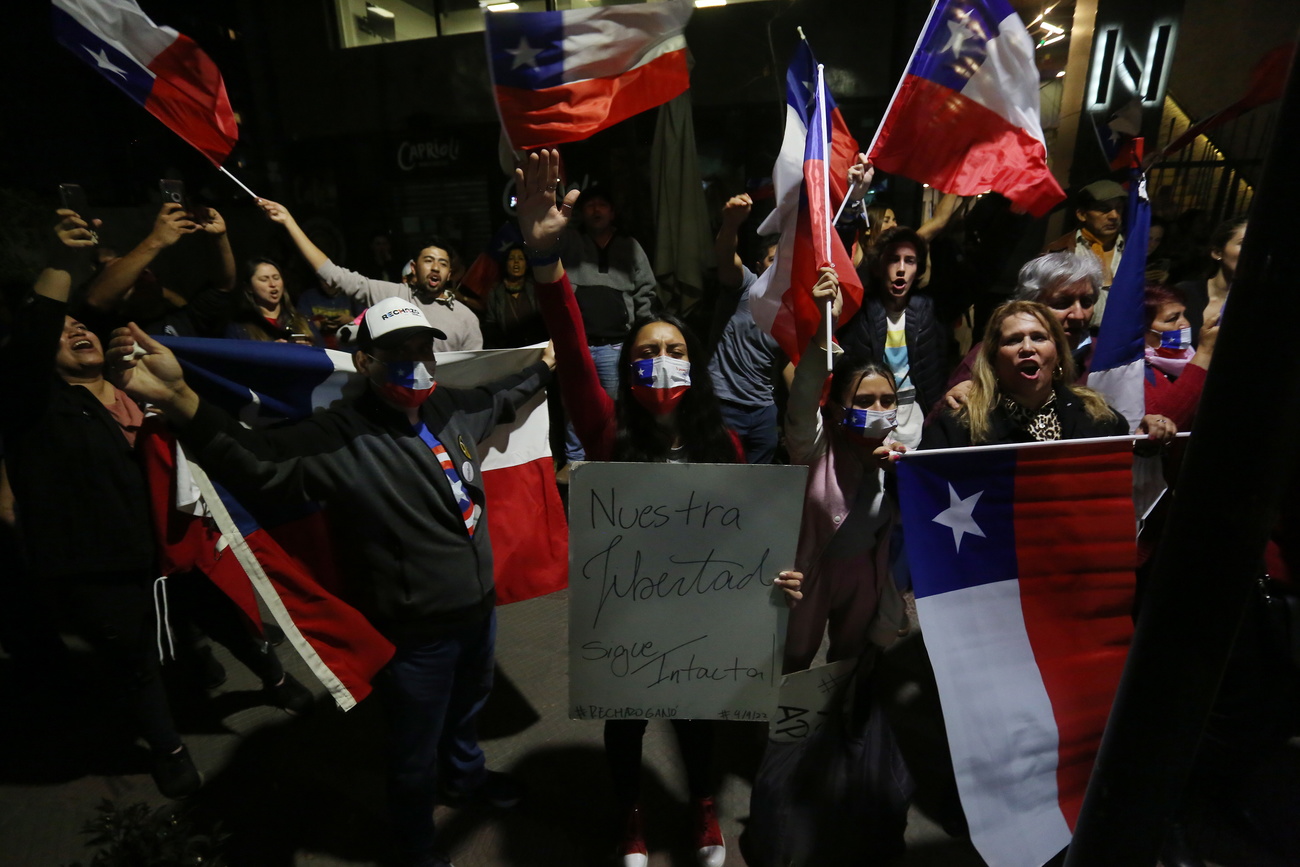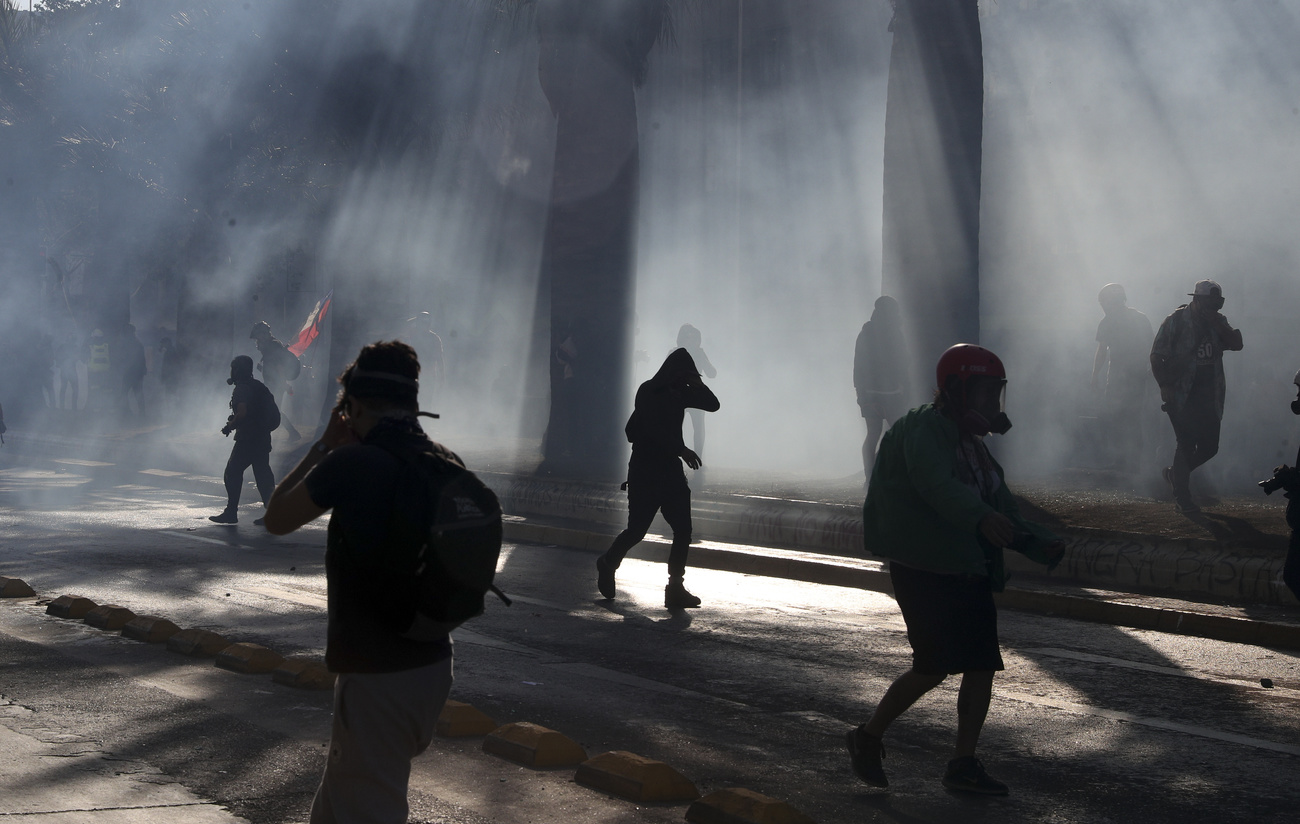Chilean constitution: a rejection in the name of democracy

More than 60% of Chileans said “no” on Sunday to a proposed new national constitution drafted by a directly elected convention. They had both good and bad reasons to do so.
“This was not simply a defeat, but a downright destruction of the work of the constitutional convention,” says David Altman. For Altman, who directs the Institute of Political Science at the Catholic University in the Chilean capital Santiago, “the proposed constitution was a very badly drafted text”.
Indeed, after years of struggle and debate, there was little doubt how the majority of the 15 million eligible Chileans would vote in the referendum held on September 4. While the often highly engaged Chileans abroad opted for ‘Apruebo’ (‘approve’) by more than 60% – in Switzerland the approval rate was 69% – voters at home said ‘Rechazo’ (‘reject’) by almost 62%.

More
Chile looks to Switzerland as it moves to more direct democracy
A different kind of vote
As soon as the 388-article, 170-page text was published in March, opinion polls indicated that most Chileans would reject the document in the popular – and compulsory – ballot.
The negative trend was however in contrast to earlier votes in the constitutional process initiated by large street protests three years ago. In October 2020, almost 80% approved the proposal to form a constitutional convention to draft a replacement for the current constitution, which dates from 1981 and the dictatorship of General Augusto Pinochet. However, turnout at that time was just 51%. Then, in May 2021, just 43% of Chileans participated in elections to choose the members of the convention.
Taken together, these two votes created a rather biased platform for the drafting process, which resulted – according to one commentator who does not want to be named – in a document in which the 155 convention members “were happy to see their hobbyhorse being written in, while the draft as such lacked consistency and clarity”.
‘Plurinationalism’ debates
One aspect of the proposed text which aroused particular interest worldwide and within the country was the series of clauses describing Chile as a ‘plurinational’ country – a definition which aimed to strengthen the rights of the indigenous people. However, this term only increased the confrontational mood, especially in the ethnically diverse south, where radical groups carried out terrorist attacks throughout the campaign as well as on voting day.
“These actions were very unhelpful to the ‘yes’ camp,” says Yanina Welp, a researcher at the Albert Hirschman Center on Democracy in Geneva who followed and advised the Chilean constitutional process from the start.
Mandate for take two?
In contrast to Altman, however, Argentina-born Welp still sees the rejected draft constitution as a “step forward with clear weaknesses”. She hopes that many of the proposals made in the document will make it into the now-necessary follow-up attempt.
However, it will be up to Chilean president Gabriel Boric, who was in favour of the document, to extend a hand to his victorious opponents in a gesture which will probably be based on two key takeaways. Firstly, that the rejected draft was politically one-sided and overloaded. And secondly, that the September 4 result was not a rejection of democracy, but rather a clear mandate to draft a better and more democratic constitution, which in the end will be able to win the support of a large majority of Chileans.

In compliance with the JTI standards
More: SWI swissinfo.ch certified by the Journalism Trust Initiative












You can find an overview of ongoing debates with our journalists here . Please join us!
If you want to start a conversation about a topic raised in this article or want to report factual errors, email us at english@swissinfo.ch.